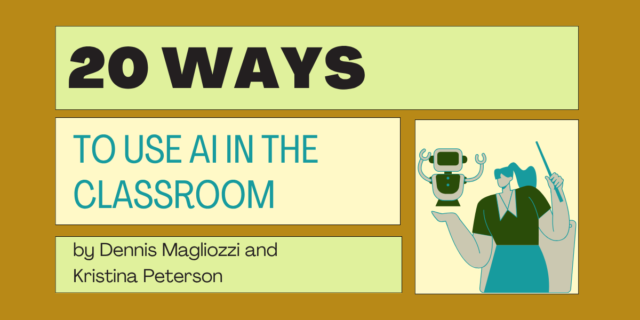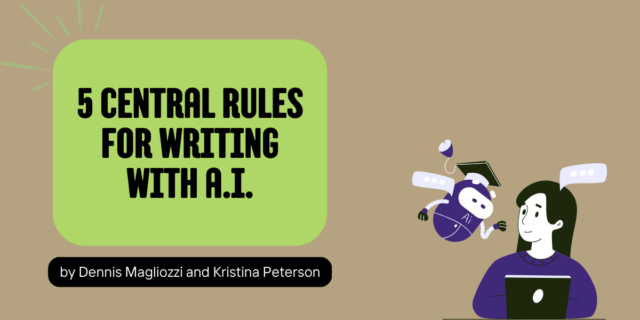
In speech, we choose our subjects naturally, and even when we struggle over the choice (“What I’m trying to say is . . .”), we can make up for any lack of clarity in the course of conversation. But in writing, particularly writing for school assignments, the choice of the grammatical subject, which appears to be such a simple matter, turns out to be fraught with hidden dangers. Students, in their attempt to take on the authoritative voice that we encourage them to, or to adhere to various rules that we have taught them, or to inflate their sentences for the purpose of fulfilling the length requirements we’ve assigned, will often choose their subjects poorly, with results like that of our example. If we keep this in mind when we look again at the sentence in question, we can see that what first appeared so tangled, so hopeless, is primarily a matter of choosing the wrong grammatical subject—Sentence Focus.
Even locating the subject of a sentence can present challenges. Most sentences we write are longer than the Dick and Jane examples of the old primary basal readers, because we necessarily add modifying phrases, some to the left of the subject–verb core and others to the right. When executed clearly, left-branching phrasing should do the job of situating the reader. But poorly executed left-branching phrasing has the effect of blurring the focus, of leaving the reader traipsing over slippery ground. Right-branching phrasing, which follows the subject or the subject–verb core, does the job of commenting on the point made in the core. Confident writers can execute both left- and right-branching phrasing with ease.
Martin Brandt writes that around the time that he began to feel secure enough to start asking a few pointed questions about his practice as an English teacher, he started by asking, "Why is it that my students write so easily and comfortably about their own lives, but their writing falls apart whenever I ask them to write any kind of analysis?" They know their own lives really well. Most of us enjoy telling stories from our lives. In California, whenever there’s an earthquake, everybody has to share their earthquake story, even though they all pretty much boil down to “I was minding my own business, and suddenly the earth started shaking, and then I was like, ‘Uh-oh!’ But I survived.” But asking students to write about something that they have only just started to think about—“How does Jay Gatsby symbolize the American Dream?” for example, or “What does The Crucible suggest about the relationship between the individual and authority?”—complicates the task of writing. In such assignments, we are asking students to master content while they write, an expectation that often leaves them flailing for the right words and phrases. Lacking both confidence and experience, they resort to habits that lead directly to poor Sentence Focus, which is often misinterpreted as a lack of linguistic ability.
The truth is much more liberating. If you are a veteran teacher who has been struggling with the best way to respond to your students’ most challenging sentences, then understanding the importance of Sentence Focus can free you from some of your greatest anxieties, both about your students’ abilities and your own. Neither you nor they are hopeless. If you are a preservice teacher, perhaps reading this book in preparation for your career, understanding Sentence Focus can help you to avoid some of the injustices that you might someday be tempted to commit in the name of rigor.
We must always remember that our students are skilled practitioners of language. When something falls apart in their writing, it’s not because they have forgotten or never learned how to communicate properly on the page. It’s not the specter of hip-hop, texting, or video games. It’s more likely a result of the struggle produced by their goodfaith attempt to fulfill the many demands that we have asked them to balance. Understanding the importance of Sentence Focus allows us to address this struggle in a way that honors their linguistic ability, so that we work not to “remediate” them, but instead to remind them what they already know how to do: make nouns perform actions. It’s just a question of finding the right noun.
…
The above has been adapted from Between the Commas. Learn more at Heinemann.com
 Follow us on Instagram @heinemannpub to stay up to date on the latest books, your favorite authors, and upcoming events!
Follow us on Instagram @heinemannpub to stay up to date on the latest books, your favorite authors, and upcoming events!
 Martin Brandt teaches English at San Jose’s Independence High School, a large urban school with a diverse student population. He is a teacher consultant with the San Jose Area Writing Project and former winner of the California Teachers of English Award for Classroom Excellence.
Martin Brandt teaches English at San Jose’s Independence High School, a large urban school with a diverse student population. He is a teacher consultant with the San Jose Area Writing Project and former winner of the California Teachers of English Award for Classroom Excellence.


